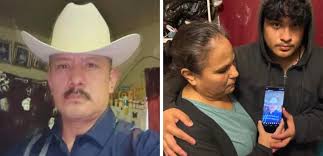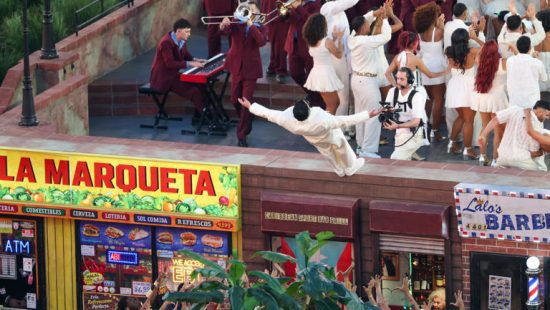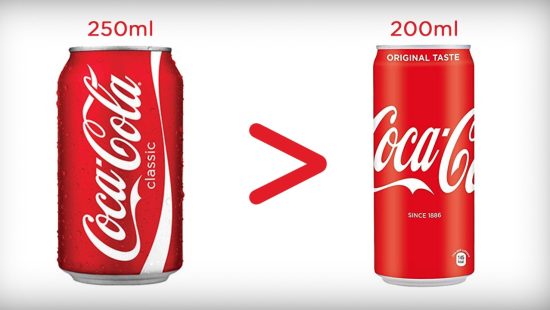I believe that when you wake up, your goal should be to shine, to be the best. I had to make the best donut in the area and have the neighborhood come to my bakery. So I called it Winstar,” he said.
John Adi Flores is one of those people who doesn’t take a negative experience as a final answer. Nor is he someone who gives up when one of his life or business projects fails. On the contrary, if one door closes, he looks for others to open—and expand.
“I’ve always worked,” says John Flores, originally from a small ranch near the city of Metapán in El Salvador. “By the time I was five or six, I was already waking up at four in the morning to take out the cows and milk them. There weren’t many cows, but I looked after them at that age. I also helped my dad with the harvest during the day, and in the afternoons, we would walk about 20 minutes to get to school.”
It wasn’t a peaceful time in his country. A civil war was ravaging the communities, and the conflict between the guerrillas and the army affected everyone.
“We would just hear the gunshots and hide under the beds,” he says.
Those were hard times, but for John, they were happy ones.
“Looking back now, I think about how beautiful my life was,” says Flores, now a businessman who began his career in electronics and is currently the owner of Winstar Donuts in Lynwood.
“Anyone who walks and breathes is my customer,” he says, laughing.
Winstar Donuts is known for the quality of its ingredients and strict quality control in preparation. Flores admits he’s very rigorous—product quality and cleanliness in the baking process are what set his business apart.
But not everything in his life has been easy.
“I had to migrate when I was 15. I had already completed primary and secondary school, but my mom had moved to Los Angeles, and I missed her. I wanted to be with her,” says the Salvadoran.
His mother, Apolonia Hercules, had family in the U.S. and decided to try her luck. John’s father stayed behind to care for him and his brother, who helped on the ranch.
“I was happy—I liked working with my dad—but I missed my mom. I remember when we’d walk to school, all my classmates had their hair nicely combed and clean clothes. I’d show up with messy hair, I would just wet it and try to fix it. That made me sad,” he recalls.
His mother, Apolonia Hercules (right), with his aunt. Both have supported Flores. His mother shared her family’s ancestral recipes.
Flores always loved school—studying was one of his passions. One day, news came that his mother had paid a coyote (smuggler) to help him cross the border. He was ready.
“We didn’t have too many problems. Yes, we saw dead people along the way, but coming from where I did, that wasn’t shocking—it was normal. We crossed Mexico and reached the border. It took three tries to cross. After a long journey, we made it to Los Angeles. I remember arriving in East L.A. on Cinco de Mayo. There was a parade, dancing, music—I thought, ‘How beautiful, it’s all a party,’” he says.
When he saw his mother, they hugged each other. It was pure joy. They lived in South Central.
“I wasn’t dazzled by the city—I didn’t come with big dreams. I just wanted to see my mom. In El Salvador, I had seen people killing each other; here, I saw people doing drugs, speaking fast. I would just stare, amazed at how fast they talked. I thought, ‘One day, I’ll speak English that fluently,’” he adds.
He told his mother he wanted to work. She had other plans—he had to go to school. But after his insistence, she relented—on the condition that he did both.
Apolonia worked at a sewing factory and got him a job there. He was an apprentice but a quick learner. Not long after, he asked the shop manager for his machine and to be paid like the others. They agreed. John started saving and finally bought the jeans he had wanted so badly. He earned minimum wage, $3.35 an hour, and made $121 every two weeks. To him, it was a lot of money—and perhaps unknowingly, the start of a successful business career.
“Working was normal. My mom sewed, ironed, and worked as a housekeeper. I always had the idea of starting a business.”
John maintains high quality standards. Many employees have left, but others have trusted his vision and remain with his project.
Learning came naturally to him. He began working for Nextel Communications as an independent contractor for over 23 years, installing alarms, stereos, beepers, and cellphones. He built a clientele, and soon someone offered him a small space in a parking lot to open a workshop. That was the start of his business, which grew quickly. He eventually had enough resources to move into a fixed location and open other branches.
“I felt like the king of the world,” he says.
But everything has an end. He ran into trouble with the electronics business and had to think of his next move.
He had already worked many years and done well. At that point, he had three stores and supplied dozens of businesses, but he closed them all except for the original store.
He needed to reinvent himself. He worked in banking for two years—but he didn’t like it.
“I didn’t like the lending practices or how they repossessed properties from struggling clients,” he says.
He began looking for his next move. He considered opening a shoe store, thinking it was a good business, but scrapped that idea. Then he thought of donuts.
“Everyone, from a person with little money to a millionaire, buys donuts. If a person walks and breathes, they are my customer. I had never worked in a bakery or knew anything about it. But I had a sense, a taste for food and flavors that I learned on the ranch,” he says proudly.
“I did the math. If someone comes in every day and buys a donut and a coffee, they spend about $5. That’s around $1,560 a year. I thought, ‘This is a great business,’” he says. “Now, the average customer spends $11,” he laughs.
“I plan to expand—I believe now is the right time. There are many vacant spaces. I already have the prototype ready, store number one. At first, I wanted to open 20 locations. Then I thought, ‘That’s too few.’ My goal now is to open 200 franchises.”
He didn’t see much difference between running an electronics business and a donut shop.
“I looked for the right name. I believe that when you wake up, your goal should be to shine, to be the best. I had to make the best donut in the area and have the neighborhood come to my bakery. So I called it Winstar,” he adds.
For him, the process was similar to phones—the customer wants the best, fastest, most capable product. With donuts, they want it fresh, the best-tasting one.
“That first bite of food in the morning is important. It makes people feel good all day. It’s a little pleasure they allow themselves. For me, the basic rules are: it must taste good, feel good in the stomach, and be fairly priced,” he says.
John never went to baking school or worked in a bakery, but he became an expert by watching YouTube videos.
“I learned everything—the differences in milk, flour—I spent hours studying,” he says.
John is also known as the inventor of the Donut Pupusa, using an original Salvadoran recipe passed down from his grandmother to his mother, and now to him. It’s a secret formula.
Even before opening, he had already hired some staff. Not everyone believed in him—some did, some didn’t. His discipline and high standards have led to 74 employees quitting.
“I know it’s a lot, but those are the standards I maintain,” he says.
Since that opening in March 2019, he has learned a lot and refined his project. He’s aware of the current economic challenges—but he doesn’t let that defeat him. He believes it’s about changing perspective.
“I was just saying recently: many customers have stopped coming. I don’t think it’s catastrophic. We have to reinvent ourselves, target a different customer profile, offer new products. Remove products that don’t sell. My plan is to expand—I believe now is the right time. There are many vacant spaces. I already have the prototype ready, store number one. At first, I wanted to open 20 locations. Then I thought, ‘That’s too few.’ My goal now is to open 200 franchises. I’m almost done with the plans and then I’ll look for investors.”
“Everything is temporary. If someone believes they’ll fail, they will,” he concludes.








